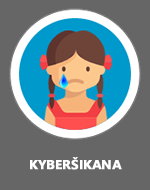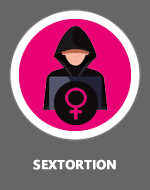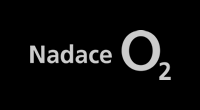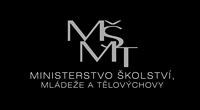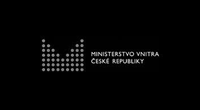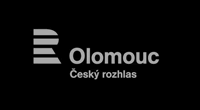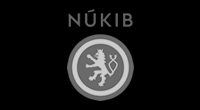 Undressing applications (so-called deep nudes, AI deep nude, AI fake nude) are software tools powered by artificial intelligence that can remove clothing from photos or videos, generate a naked human body and create a realistic illusion of nudity. The tools that make this possible are freely available and can be misused by literally anyone. Moreover, this technology is not regulated in any way, and can be used in practice by virtually anyone; many applications of this type are completely free.
Undressing applications (so-called deep nudes, AI deep nude, AI fake nude) are software tools powered by artificial intelligence that can remove clothing from photos or videos, generate a naked human body and create a realistic illusion of nudity. The tools that make this possible are freely available and can be misused by literally anyone. Moreover, this technology is not regulated in any way, and can be used in practice by virtually anyone; many applications of this type are completely free.
Abusing deep nudes for cyberbullying
Deep nudes are already starting to be used in cyberbullying and their impact on mental health can be truly fatal - in addition to reputational damage or depression, they can lead to self-harm or suicidal behaviour. The impact on the future of the victims, who may find it difficult, for example, to obtain prestigious employment, cannot be ignored.
Cases from Europe
The first cases reported in Europe include the misuse of photos of 20 girls aged 11 to 17 from Almendralejo, Spain. Their photos were taken from their Instagram profiles, altered using a deep nude application, and distributed through WhatsApp groups. One of the girls was even blackmailed, with threats that her intimate photo would be published if she did not pay.
Several cases are also being investigated by the Czech police.
Cases from USA
New York Times recently highlighted the appearance of photos of undressed female students, created by artificial intelligence, that have wandered through several schools in the US (Westfield Public Schools in New Jersey). The schools launched an investigation and informed the police about the situation. The police have repeatedly warned that the creation and distribution of such material among adolescents is illegal and that such cases must be reported. It was subsequently discovered that the production and distribution of deep fake photos was perpetrated by a student who struck up a friendship with a 15-year-old classmate on Instagram, copied their photos from her account (and those of other classmates) and created deep nudes, which he then used Snapshat to spread among his classmates.
A high school in Issaquah High, near Seattle, also saw the distribution of generated pornography aimed at 14- and 15-year-olds, and the school failed to report the incident to police despite being legally obliged to do so - it was sexual abuse, which includes the creation of such material.
Deep Nudes was also dealt with by Beverly Vista High School in Beverly Hills, California - five boys created and shared explicit images of female classmates created by artificial intelligence. The boys were subsequently expelled. In addition, the school published a statement saying that "Any student found to create, distribute or possess images created by AI of this nature will face disciplinary action - including a recommendation for expulsion."
Other cases have occurred at Richmond Burton High School in Illinois, where over 30 female students and 3 female teachers were victims of deep nude.

Laws against deep nudes are emerging around the world
Laws targeting the creation and distribution of deep nudes are emerging worldwide. According to data collected by the National Center for Missing & Exploited Children, since the beginning of last year, at least 20 states in the USA have introduced laws to combat sexually explicit images generated by artificial intelligence, known as deepfakes, involving individuals under 18. Among them is South Dakota, which this year passed a law banning the possession, production, or distribution of AI-generated child sexual abuse material depicting actual minors. Louisiana enacted a law last year criminalizing sexually explicit depictions of minors created by artificial intelligence.
The European Union also plans to criminalize deep nudes. Proposals to criminalize this type of cyber violence have been agreed upon by the European Council and the European Parliament, awaiting final approval by member states.
The Czech Republic is not lagging behind. An amendment to the Criminal Code is currently being drafted, which has already been submitted for comments. The new paragraph is titled “Misuse of Identity for the Production and Distribution of Pornography.” Anyone who produces or distributes a pornographic work that depicts or otherwise exploits a person who has not given consent will be punished by imprisonment of up to two years, a ban on activities, or forfeiture of property. If such material is published, for example on the internet, the perpetrator faces imprisonment of six months to three years. If this is done within an organized group across multiple states or to gain significant personal benefit, they will lose their freedom for one to five years.
Conclusion
With the increasing development of AI-powered technologies such as undressing applications (deep nudes), it is becoming increasingly clear that we are facing a serious problem with consequences that transcend cyberspace and deeply impact real lives. The cases described above show how unethical use of this technology can cause irreparable damage, not only to mental health but also to the reputation and future of the victims.
Global legislative developments aimed at regulating and criminalizing the misuse of these applications are a necessary step toward protecting victims and ensuring justice. However, legislation alone is not enough. Public awareness, especially among young people, needs to be raised regarding the risks associated with undressing applications and the importance of digital ethics. Education, victim support, and effective enforcement of legal regulations must work hand in hand to effectively suppress this new form of cyber violence.
Ultimately, it is crucial for society as a whole to take responsibility and stand together against this phenomenon. Only then can we ensure that the digital space remains a safe place for everyone, regardless of gender, age, or vulnerability.
Kamil Kopecký
Palacký University in Olomouc


